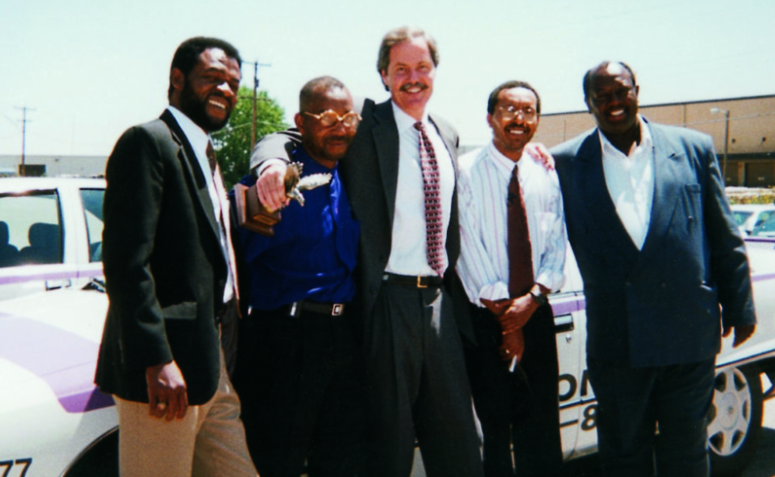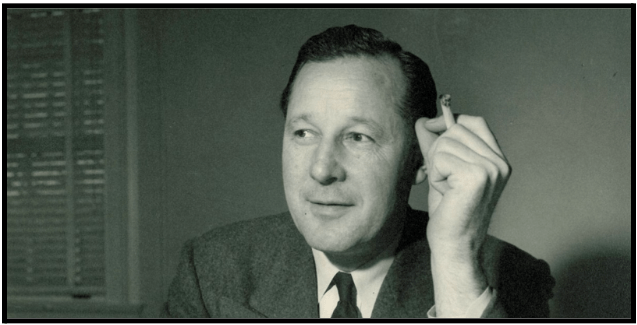He built a law firm that made the world better and inspired those around him to achieve excellence – and feel part of something profound.
Talking Big Ideas.
“You can change the world – and have fun doing it!”
~ Chip Mellor
Chip Mellor died this past Friday. He was 73.
Much has been written about his commitment to judicial engagement and the mark he left on the legal world. I encourage you to read the tributes published by the Institute for Justice, the Wall Street Journal, and Reason magazine.
I’m going to focus on the lessons Chip taught me, a non-attorney who started working at the Institute for Justice (IJ) – the public interest law firm he founded – as an entry-level employee back in 2005, and who left IJ more than a decade ago.
Maryrose and I were planning to have dinner with Chip two weeks from today. I was going to pick his brain on life and turn our conversation into an article I’d publish here. I’m sad we’ll never have that conversation, or any others. This is my attempt to capture what he might have said, based on what he’s said and done before.
In the spirit of Chip’s book highlighting a dozen Supreme Court cases, I highlight a dozen principles he embodied. This is not an exhaustive list; it’s simply the essence of what I learned from him.
***
#1. Build Something that Makes the World Better
Chip believed every person has the potential to “seize the initiative” in their life in a way that creates real value for the world.
The better we get at directing our lives and “controlling our destinies,” the more likely we are to grow and unleash our unique talents. We can look out at the world and ask: what can I do to make things better?
Perhaps it’s improving a project at work. Or at home. Maybe it’s helping a child get into a better school, or starting a new organization, or making massive rockets that send humans to Mars.
In big ways and small, we can take control and be useful.
Some of us, like Chip, will have the privilege to create something that lives longer than we do – and makes the world a better place.
#2. Be Open and Honest
Chip was inspired by the NAACP.
In the 1930s the NAACP announced their vision to overturn segregation in public schools, and explained their strategy to fight for their cause in two courts: the court of law, and the court of public opinion. After twenty years of effort they succeeded.
Chip loved to share this story and then hold his hands out, palms up. He’d say, “like the NAACP, we’re palms up in what we do.”
He believed we should be open about the principles we embrace, the world we want to build, and the plans we have to do it. Chip was always clear about his unique vision for a principled and engaged judiciary, carving a sweet spot between judicial activism and judicial restraint.
Authentic visions are rarely conformist. Chip taught us to resist the pressure to hide the unique aspects of ourselves and instead be honest about who we are.
#3. Attract Excellence
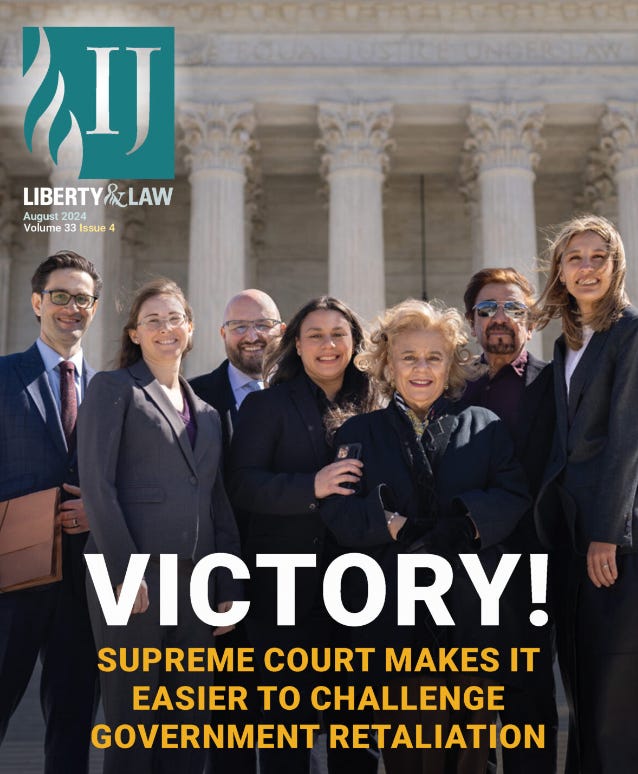
Chip was a leader.
His father died when he was just 15 years old, and Chip stepped into a leadership role for his mom and two younger brothers. He would lead people for the rest of his life.
Before becoming founder of the Institute for Justice, Chip was recruited to lead the Foundation for Economic Education (FEE), the Institute for Humane Studies (IHS), the Pacific Research Institute, and Mountain States Legal Foundation.
While he didn’t take the positions at FEE or IHS, he admired the FEE founder Leonard Read’s idea of excellence.
Read believed that excellence is a powerful attractor. When we achieve excellence, we draw people to us, inspire them, and gain influence over their minds. This creates a positive spiral that can build lasting organizations as well as movements.
My first day at IJ, I was helping answer the phones when the Nobel laureate Milton Friedman called for Chip. I’d find out later they were buddies.
Talented people were drawn to Chip because of his excellence. Everywhere you look at IJ – the activists, attorneys, clients, donors, friends, and staff – you find talented people drawn together to advance IJ’s mission.
#4. Unite with All to Do Good
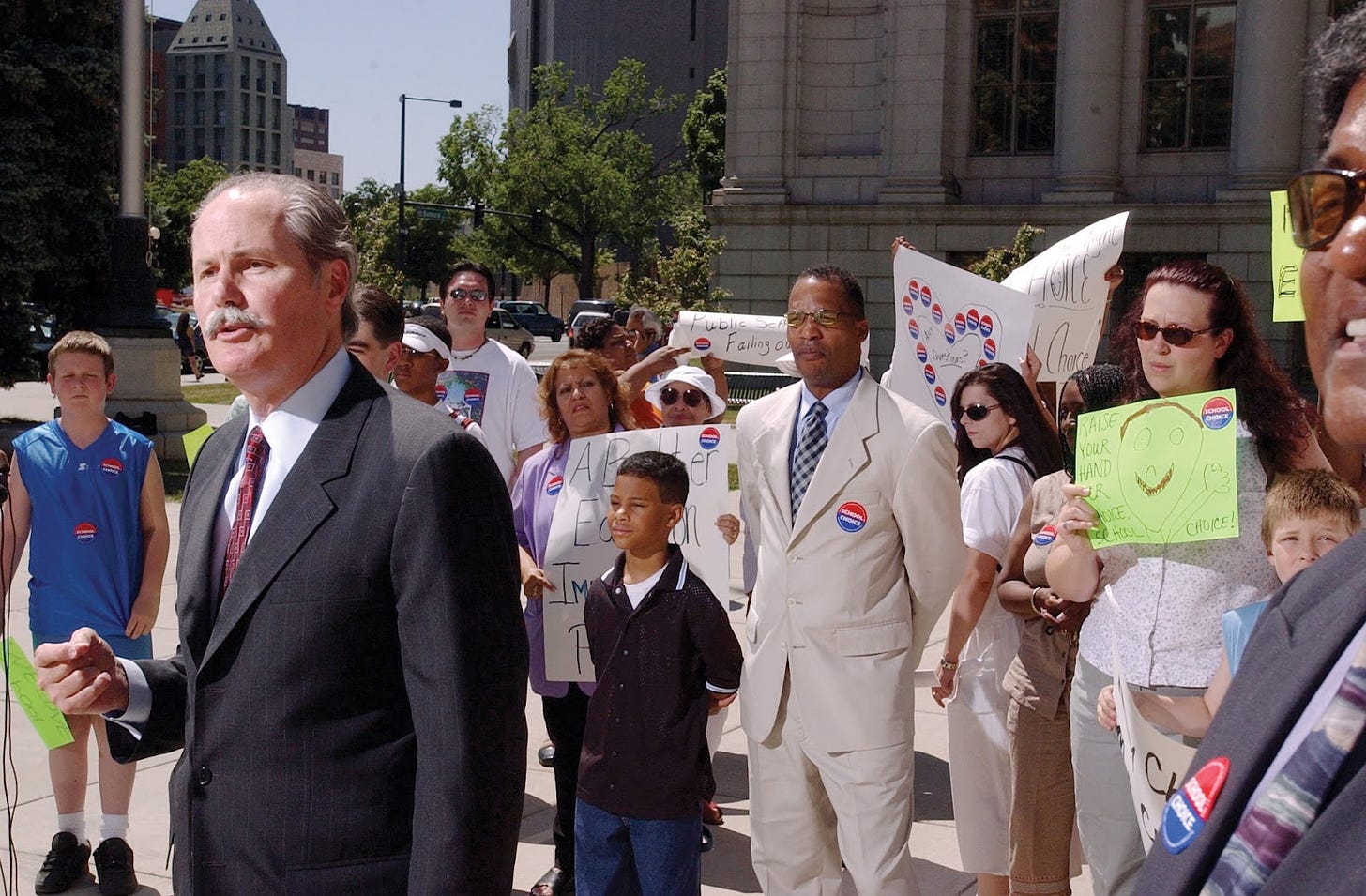
Chip embraced the Frederick Douglass motto: “unite with anybody to do right and with nobody to do wrong.” Be guided by principles and truth over tribalism and dogma. He encouraged people to form what he called non-traditional alliances.
My first month working at IJ, I went to Capitol Hill and watched a press conference where an ethnically and ideologically diverse coalition of politicians and activists pledged to work together with IJ to better protect the Constitutional rights of everyday Americans.
Chip loved to team up with people across all ages, ethnicities, and ideologies, from inner-city kids to billionaire philanthropists, from the NAACP to the Heritage Foundation, from the ACLU to Charles Koch – everyone willing to work together to help him make the world better.
#5. Embrace Rational Optimism
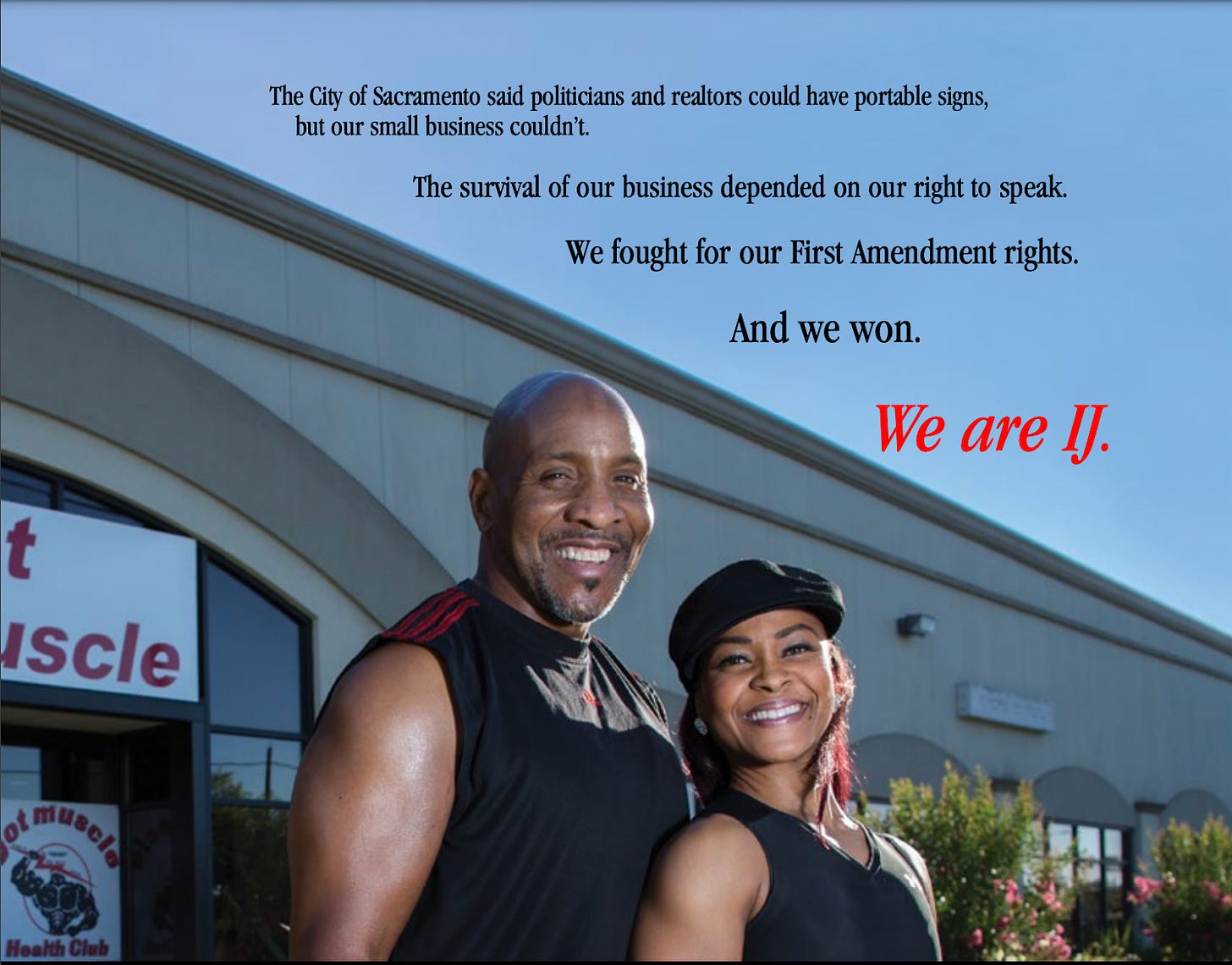
Chip believed we could build a better world.
He introduced me to Matt Ridley, the author of several fantastic science and economics books, including The Rational Optimist. Chip was quick to acknowledge the real and terrible problems in the world. And then he’d encourage those around him to work together and do something about it.
Max Roser’s mantra would resonate with Chip: “The world is awful. The world is much better. The world can be much better.”
#6. Share Compelling Stories
Chip believed we can “seize the initiative” to frame the narrative for every project we work on. And when battling difficult odds – like suing the government – it’s essential to set the terms of debate from the beginning.
This is why Chip believed every IJ case should be brought to life with compelling stories.
For example, imagine you and I got together to discuss the merits of the National Organ Transplant Act. We could spend hours wading through the complexities of the law.
Yet would that have the same impact as watching the first ten seconds of the IJ video above? Please watch it and then ask yourself, what does your gut immediately say to you? Do you want to be on IJ’s side, or the government’s?
Compelling stories are an essential component to changing hearts, minds, and laws. If we want to make the world better, we should share real stories about real people.
#7. Obsess Over Culture

Chip believed the secret to IJ’s success was culture. Lots of places attract talent, he would say, but IJ is unique because of its culture. He established five core cultural values and called them The IJ Way:
- Be Entrepreneurial
- Be Active in the Real World
- Be Positive and Open
- Be Principled
- Be Resilient
One day Chip called me to his office. I remember walking in with trepidation and sitting down across from him. He told me that he appreciated how I was being a good cultural ambassador and so he was giving me a thousand dollar bonus.
He asked me for a favor: would I help him instill The IJ Way in the new hires? I was thrilled by the thought. It was among the proudest moments of my professional life.
I distinctly remember him looking me in the eyes and complimenting my “esprit de corps,” after which I left his office beaming – and quickly looked up what “esprit de corps” meant.
#8. Have Fun!
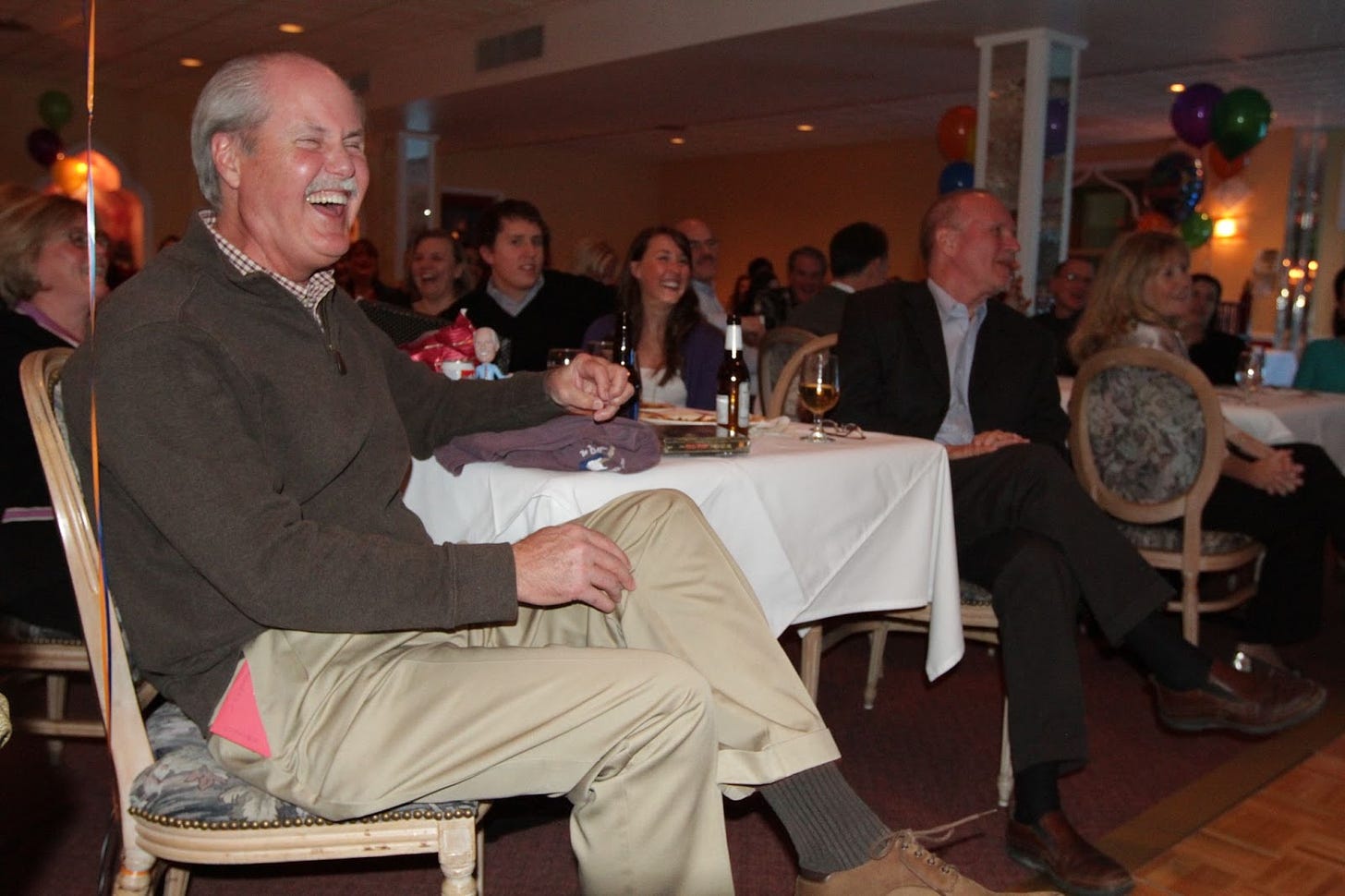
If you knew Chip, you remember his laugh.
A common occurrence at IJ: John Kramer, the communications guru and one of Chip’s closest friends, would go into Chip’s office at the end of the day and together you’d hear them laughing. Chip’s ‘guffaw’ would ring through the halls.
Chip believed it was essential that we don’t take ourselves too seriously. Humility and levity were core to his nature. He encouraged managers to read military history for the many leadership lessons, but also make time for fiction.
Even as an entry-level employee, I would read fun fiction books together with Chip and other IJers. We loved The Dog Stars, The Last Policeman, The Passage, and Wool – all for pure pleasure, none having anything to do with our work at IJ.
When I heard how sick Chip was, I picked up the new Justin Cronin book The Ferryman. I knew how much Chip enjoyed Cronin’s earlier work, and I felt inspired to drop the non-fiction books I was reading and return to the pleasures of a Cronin novel.
#9. Build a Well-rounded Life

We had lots of happy hours at IJ. One time I was having a beer off to the side with some new employees when Chip walked over and hung out with us.
We asked him questions and he answered thoughtfully. When it came to career advice, he said that it makes sense for young people to focus hard on their careers. But be careful. He said we’ll meet lots of people in DC who only focus on their careers, and so they end up missing out on many of the most important things in life.
At some point, we should focus on finding a life partner and being devoted to them. And later, if we feel the urge, to have kids.
Many of the most important things in life, he taught, are often unrelated to work: a home filled with love, a peaceful mind, a healthy body, deep family ties, a connection to something larger than self.
A fulfilling career is incredible – and just one part of a life well lived.
#10. Inspire People to Grow
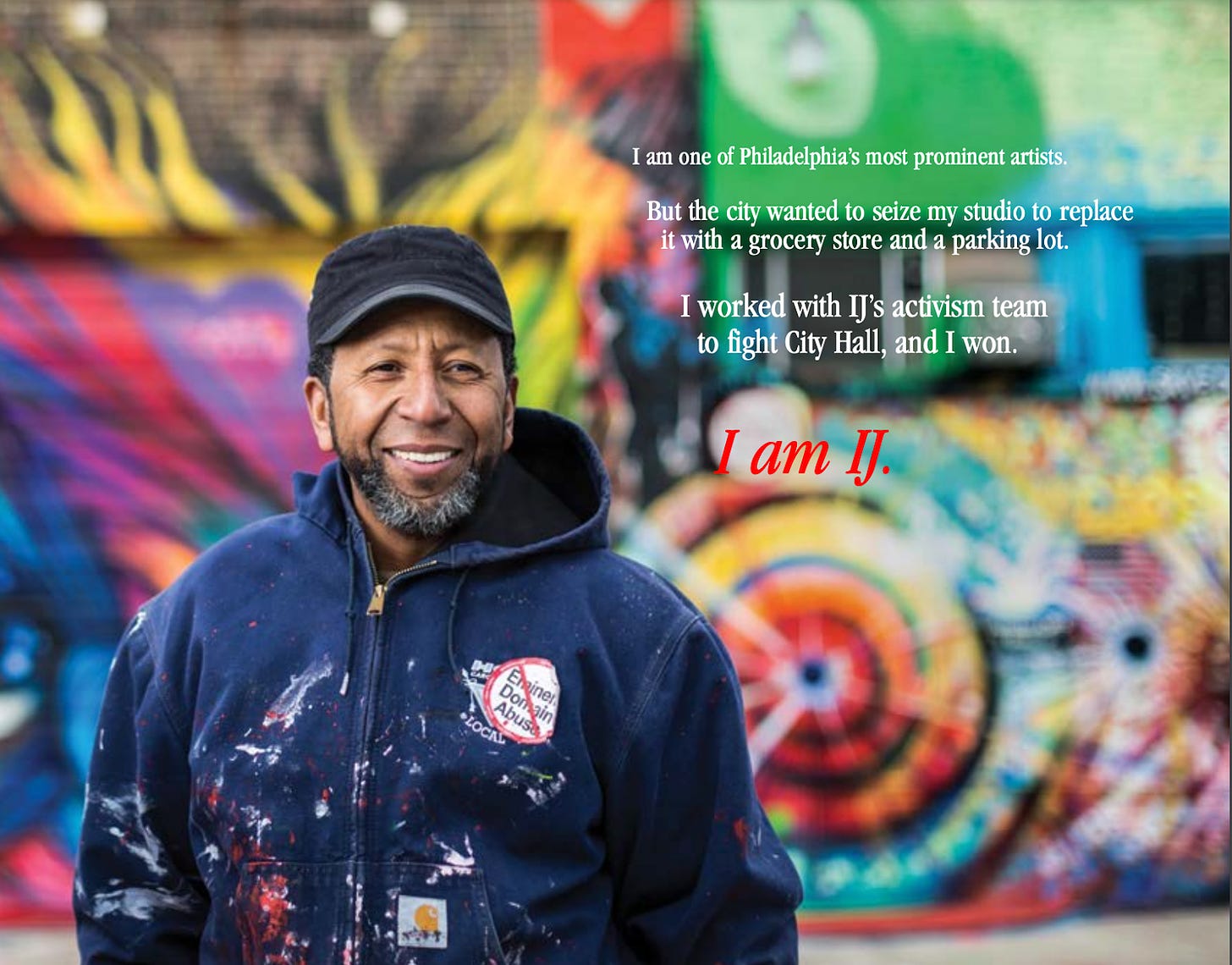
The author John Maxwell writes that the role of a leader is to help others realize their potential. Chip was a master of this. I enjoyed seeing IJ attorneys develop into legal experts able to craft and defend winning Constitutional lawsuits.
But the most noticeable growth happens with the clients as they build their confidence and find their voices. I loved working beside them as they’d step into the limelight to defend themselves and others against challenging odds – and win.
#11. Give Power to the Powerless
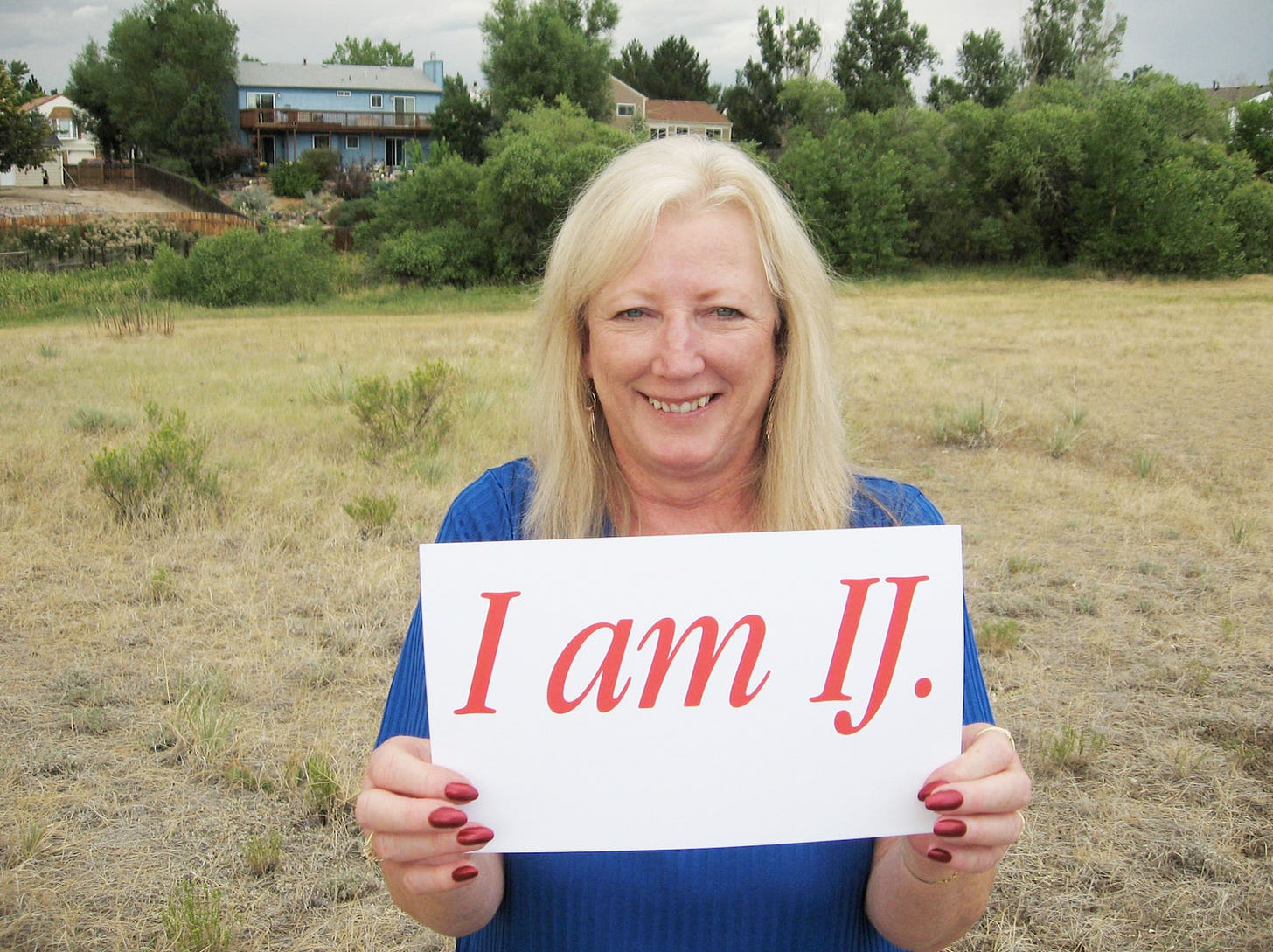
Chip’s speech The Quest for Justice from September 1991 is worth a close read. He lays out his vision for a better legal landscape in America, officially announces the Institute for Justice, and builds up to this:
Who will we represent in court? At a time when there is more litigation than ever before, increasing numbers of Americans are shut out of the legal system. They have no recourse . . . they are increasingly powerless to control their own destinies, to provide for their families, or to enjoy the benefits of liberty.
These are the people we will represent . . . we are really only helping them reclaim what has been rightfully theirs all along. Justice indeed.
With the help of IJ, for the past 33 years everyday Americans across the country have been empowered to stand up for their rights and win – from African hair braiders to inner-city parents to a little old widowed grandmother defeating Donald Trump in court.
#12. Foster Connection to a Grand Purpose
The last time I saw Chip was at the Supreme Court.
Maryrose and I went to watch IJ argue Timbs v. Indiana, an important Constitutional case defending Americans from excessive fines. Wesley Hottot, the IJ attorney arguing the lawsuit, crushed it. Afterwards Maryrose and I joined Chip and others in surrounding Wesley in the hallway to congratulate him.
Several of us went out with Wesley after the argument. We told stories and laughed and celebrated. I had been gone from IJ for half a decade, yet Maryrose and I felt at home. It was a wonderful experience.
Three months later the Supreme Court issued its opinion: Every justice agreed with IJ. Their decision was unanimous.
That was more than five years ago. IJ’s up to ten Supreme Court victories and I’ve since moved to Durango, gotten married, and become a father. Yet I still feel drawn to this idea of IJ that brings together Americans from all walks of life: Every ethnicity, culture, and background.
Notice all the people in the video above, how excited and honored they are to be a part of IJ’s mission – to be a part of something profound.
When Chip told me he was likely too sick to meet up for dinner, I reflected on my time at IJ and how I’ve worked to apply the lessons Chip taught me over the decade I’ve been gone.
Like so many others around the country, I feel like I am and always will be a part of what Chip built.
I am IJ.

